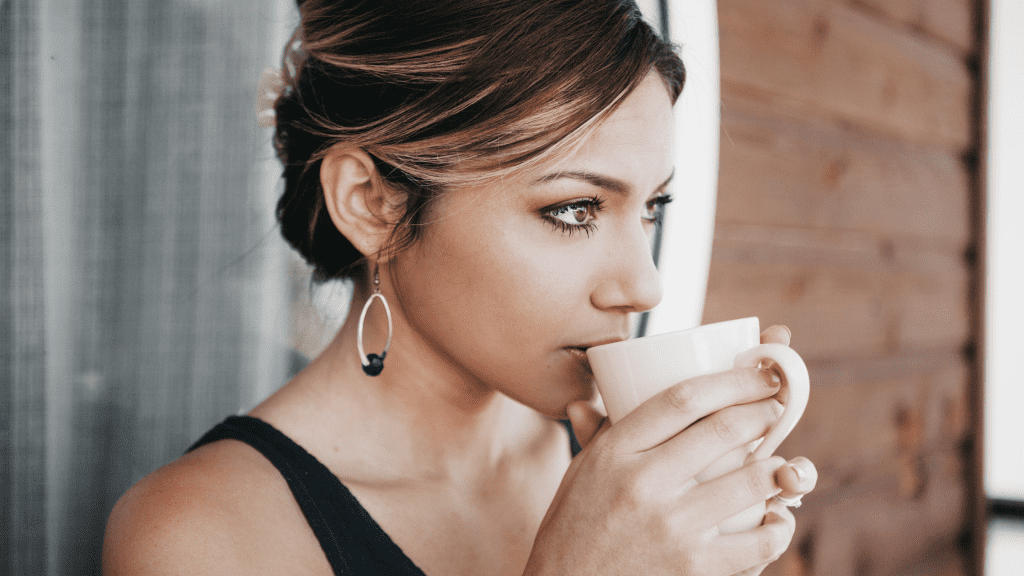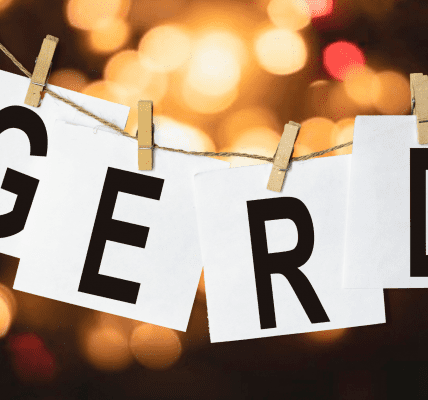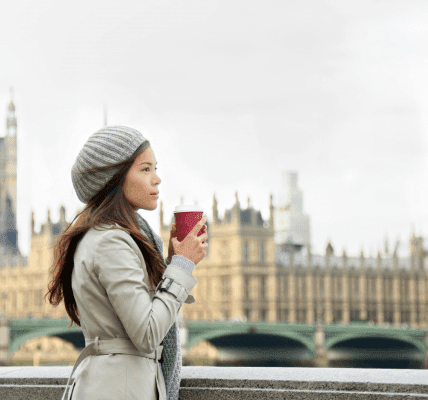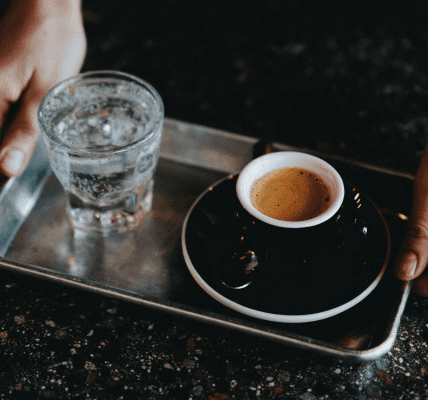
If you’re anything like me, a cup of java is a must to give you the energy of a fighter plane. But many java-heads notice that after a certain point, the beverage makes them more on edge than energetic. So what do you do if coffee makes you anxious?
The obvious way to eliminate caffeine-induced anxiety symptoms is to cut off your coffee intake. But that might be an impractical solution. Instead, incorporate java into a balanced lifestyle with sufficient sleep, exercise, and a healthy diet rich in magnesium and calcium.
With proper control over your coffee intake alongside stress management, you can get rid of coffee jitters. So keep reading to find out all about it.
Coffee and Its Mental Benefits
Table of Contents
If you need coffee every day to get recharged, you’re not alone. Around 80% of American adults are right there with you – and there are plenty of reasons for that.
- Caffeine stimulates the central nervous system and boosts energy levels.
- It prevents the buildup of adenosine receptors in the brain to reduce drowsiness.
- It boosts dopamine and enhances the ability to recognize rewards for motivation.
- It increases the time required by the body to feel exhaustion and delays fatigue.
- It can protect your brain from neurodegenerative conditions like Alzheimer’s.
- It reduces the possibility of depression and suicide.
- It lowers the risks of memory disorder, cognitive decline, and dementia.
And, it’s not just mental stimulation that you can expect from coffee. This beverage also boosts your physical performance and your ability to exercise harder.
Why Coffee Causes Anxiety
Coffee is truly heaven in a cup and makes you more alert and less sleepy. But too much coffee can overstimulate the nervous system with adrenaline, acetylcholine, and dopamine.
Caffeine also increases stress hormones, cortisol, and epinephrine and suppresses the calming effects of the GABA neurotransmitter. This sends your brain into overdrive and intensifies anxiety symptoms.
Coffee further depletes various nutrients, including calcium and magnesium, triggering symptoms of anxiety. And if you like your cuppa sweet, you run a higher risk of experiencing anxiety due to sugar.
A Word of Warning…
Your doctor may ask you to stop having coffee if you’re diagnosed with medical anxiety, caffeine allergy, sleep disorders, migraine, etc. Additionally, coffee might interfere with medicines you already take, such as heart and asthma meds, antibiotics, stimulants, etc.
Recommended Quantity of Coffee – How to Find Your Caffeine Capacity
The FDA suggests that the maximum daily caffeine for adults should be 400 mg, i.e., 4-5 cups of coffee. But can you really consider this a thumb rule while considering the amount of caffeine in coffee?
Not really, because everyone’s body reacts differently to caffeine, and you must find your own threshold. Your age, body weight and height, medical conditions, and genes dictate how much coffee you can tackle.
So it’s essential to keep track of your coffee consumption and correlate it with the symptoms. You should also ask yourself whether it’s coffee – or another stressful event – that’s making you sleepless, nervous, irritable, and uncomfortable.
Here’s one piece of bad news – you might be genetically wired to reject caffeine, i.e., you’re caffeine-sensitive. So to find out your caffeine limit, you need to be observant of your body and mind for the first few days.
How to Start Reducing Coffee Consumption
The sad truth is, if coffee gives you anxiety symptoms, you’ll have to cut back a little. But be careful not to reduce the amount in one go – or you’ll suffer from withdrawal symptoms!
It may come as a shock, but quitting coffee cold turkey can give you headaches, make you tired and irritable, and cause difficulty focusing. It can even give you body aches!
The best way is to wean off gradually, so you’re gentle to your body and mind. A good start would be to take turns between regular caffeinated coffee and decaf.
The taste and aroma of decaf will create a placebo effect and trick your brain. So it doesn’t recognize the reduced caffeine in the system.
Another helpful trick is to mix decaf with regular coffee. Try these for 2-3 weeks before you reduce your coffee intake further down to a healthy level that works wonders for your mind instead of making it overwork.
How to Reduce Coffee-Induced Anxiety
The good news is that unless your medical history and medications prohibit coffee, you don’t have to get rid of this heavenly drink. Instead, you can take steps to reduce caffeine-induced anxiety. Here’s what you can do –
a) Check Coffee Type
You can enjoy the rich taste of coffee without loading up on caffeine – by choosing the right variety. Dark roasts and coarse grounds, for instance, have less caffeine.
Plus, the caffeine content can vary on the basis of the brew and coffee type. A typical 8oz cup of instant coffee contains 62 mg of caffeine, roughly the same as a 1oz shot of espresso.
On the other hand, a cup of regular hot brew contains 80-100 mg of caffeine – compared to the 102-159 mg of caffeine in a cup of cold brew. Decaf, however, contains only 7 mg.
b) Time Your Drink
Did you know that caffeine remains in your system for 3-5 hours? So it’s a good idea to wait and allow the effects to subside.
Of course, the effects can last even longer, depending on your body. And, drinking coffee after 3 pm almost certainly means you’ll be staring at the ceiling at night.
You can get your first coffee kick early in the morning, so you can get up to three cups by late afternoon. I suggest you wrap up your coffee spree by 2 pm – and enjoy other coffee alternatives to satiate your evening cravings.
c) Manage Stress
If you already have stress issues, your love for coffee might be a good excuse to start managing the situation. Now, I am not talking about clinical anxiety, which may likely be managed by medicines only.
But if your general life and its events keep you stressed, it’s time to make some changes. The aim is to reduce the anxiety-inducing effects of coffee while keeping stress at bay.
Try yoga and meditation, stress-reducing activities like playing with pets, or planning your day’s work. A lot of things can work for you instantly – and leave a long-term effect.
d) Get Mineral Supplements
Coffee can lead to a significant loss of calcium and magnesium – among other nutrients. It can also affect the reabsorption of both.
As a result, you can experience anxiety symptoms. The symptoms can get really bad if you already have a calcium or magnesium deficiency.
So, as a regular coffee drinker, you must ensure that your body has an abundant amount of both of these minerals. If required, you need to take supplements to replenish these.
e) Get Sufficient Sleep
Did you know that sleep deprivation can make you even more stressed out and jittery than you already are? Now, one of the reasons most of us drink coffee is to keep sleepiness and fatigue at bay – and keep you awake.
So you can see how caffeine, insomnia, and anxiety can be tied in an endless vicious cycle. If you get sufficient sleep, these problems won’t bother you.
Proper sleep for at least 7-8 hours a day will relax your mind and help you feel refreshed. In fact, you may not need caffeine to work its magic.
f) Stay Hydrated
Water seems to reduce the potent effects of caffeine while it leaves the system. There’s little research to support this, but many people have experienced this – including me.
Drinking a lot of water can flush the caffeine out of your system. And remember to replace the electrolytes in your body, especially if you have stomach issues.
So stay hydrated throughout the day – not just a large quantity in a single go. Otherwise, the water will leave the body and dehydrate you.
g) Get Some Exercise
Coffee is one of the most popular pre-workout beverages because it boosts your energy levels. And working out can metabolize the caffeine content.
Having too much coffee can bottle up a lot of energy in your body. And, when you work out, you can prevent all the unwanted energy from making you jittery.
Even if you are not heavily into exercising, you can try brisk walking, jogging, and stretching. Even yoga and deep breathing can improve metabolism.
h) Eliminate Sugar
Are you taking sugar or other artificial sweeteners with your coffee? It is probably one of the reasons you are suffering from anxiety after having coffee.
Added sugar causes a spike in the blood sugar level, causing changes in energy levels. Again, as the sugar level drops, the energy levels drop too, causing mood swings.
Sugar, when combined with caffeine, can trigger anxiety and stress. So, it’s time for you to stop adding sugar to your cuppa java.
i) Change Diet Plan
For coffee drinkers, a diet rich in whole grains, nuts, seeds, starchy vegetables, etc., is recommended. These foods get digested slowly.
So how does that help with anxiety symptoms? These foods delay the release of caffeine into your bloodstream, preventing its adverse effects.
Interestingly, a healthy diet plan is also rich in nutrients like calcium and magnesium, which are depleted by caffeine. Also, add alkaline fruits and veggies to your diet as they help reduce the effects of physical and mental stressors.
j) Cut Back Other Caffeine Sources
So you have your coffee consumption under control – and your health, diet, and lifestyle are on point. Then why is coffee still giving you anxiety?
That’s because you might be ignoring the other sources of caffeine. You probably still have regular consumption of caffeine – and you don’t even know about it.
Some heavily-caffeinated non-coffee drinks include soda, hot chocolate, energy drinks, health supplements, and more. Also, look out for coffee alternatives like tea and decaf, which still add small amounts of caffeine to your body.
Best Coffee Alternatives
There are many coffee alternatives that can energize you and quench your thirst for a delicious drink. Here’s a quick look at the amount of caffeine in an 8oz cup of the following beverages –
- Black Tea -45-55 mg
- Green Tea – 30-50 mg
- Green Coffee – 20-50 mg
- Kombucha – 10-15 mg
- Chicory Coffee – No Caffeine
- Decaf Coffee – 7 mg
- Herbal Tea – No Caffeine
You could choose other beverages, like lemon juice or apple cider vinegar. But I can’t imagine myself drinking some lemonade or a tall glass of water when I can’t keep my eyes open during my 3 pm meeting.
I suggest you shift to low-caffeine energy boosters – or beverages that remind you of coffee flavors or its light bitterness. Replace a few cups of coffee every day with the above drinks.
At the time of choosing coffee alternatives, be careful not to end up picking a beverage that has more caffeine than coffee. So always check the caffeine content in any coffee-alternative that you take.
Drinks that contain Yerba Mate, Matcha Tea, etc., are often highly caffeinated. Another ingredient you must avoid is Guarana, with four times more caffeine than coffee.
Final Words
If coffee makes you anxious, start by identifying the reason – and reduce your caffeine intake slowly. But don’t worry! You won’t have to let go of the divine source of energy.
Just make some changes in how you incorporate coffee into your daily life. That way, you can enjoy its rich aroma and energy-boosting power – without any uneasiness.



